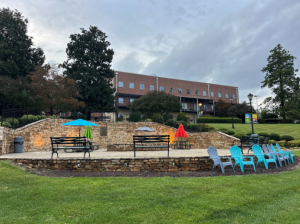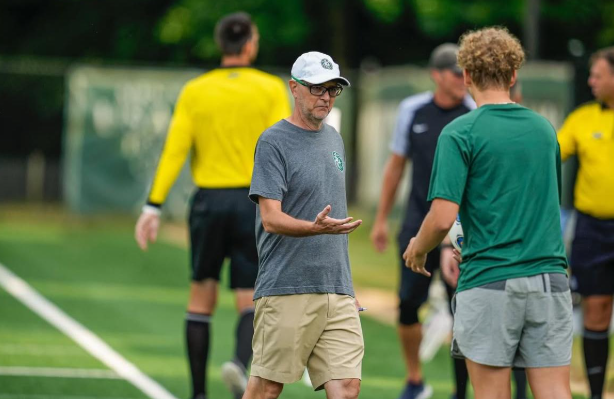We Need Comprehensive Sex Ed on Campus
September 14, 2020
Over the past few years, many media forums have highlighted the failures of the health and sex eduation curriculum in the United States; this is especially true in the Bible Belt. In Georgia, school systems are free to choose whether or not the material they cover is comprehensive or abstinence only. Overall, only 17 of the 50 states require sex-ed to be medically acurate. Georgia is not one of those states. In fact, Georgia, while requiring sex education, does not require medical accuracy, age appropriate lessons or cultural sensitivity, but it can push a religious agenda and parents must be notified before their students take the course and are allowed to opt their child out. Georgia also requires the teaching of abstinence and stresses the importance of only having sex within the bonds of marriage. However, the state does not require education to be inclusive of the LGBTQ+ community or lessons on consent, sexual decision making, or healthy relationships.
Because of the tenuous relationship the Georgia Standards have with the truth about sex, colleges need to pick up the slack when it comes to educating their students about sexual health. Of the 11 General Education groupings at Piedmont, eight of them can be covered by either a history, philosophy, or english course, but not one has an option for health and wellness. The most that students at Piedmont receive in the approach of a formal sex education is the yearly EverFi training course, which as the Roar understands it, is only required yearly for residential students. This is simply not enough. A once a year course that can easily be skipped through or ignored does not teach students what they need to know about abuse, substance abuse, health and wellness and precautionary sexual information. This information is equally as important for students who aren’t sexually active as it is for those who are.
Most college students are going to have sex and when 82% of this year’s incoming freshman class are in-state students, it is necessary to educate them better than than the information they come in with. Studies show that inclusive, or comprehensive sex-ed is proven to be more effective at reducing the spread of STDs and the rate of teen or unwanted pregnancies. We should be taught all the necessary information required to make healthy choices about our sexual health. In 2018, the CDC ranked the state of Georgia seven in cases of chlamydia, 15 in gonorrhea, and four in syphilis. These are not numbers we want to see reflected on our college campus, and requiring a health class in the midst of our 47 hours of General Education classes is pertinent.
The college’s most crucial roles are the academic and social development of the student body. While academically it is important for students to understand their bodies, their sexuality, and the concequences, both good and bad, of entering into sexual relationships, teaching proper sex-ed goes beyond the walls of the classroom. Understanding sex is a crucial part of the mental and physical wellbeing of college students and adults. This is especially true in a state where purity and virginity are pushed upon students rather than responsibility and the medically sound information needed to make informed decisions about their sexual wellness. Another study showed that comprehensive sex education that addresses self protection and legal rights is significantly protective against sexual assault. Women are most likely to be assaulted while in college, so the addition of a comprehensive sex education course during the freshman year could play a significant role in protecting the women of Piedmont. Events like Safe Spring Break are wonderful and so important for the student body to have access to, but we can do more, and we can do it sooner.













